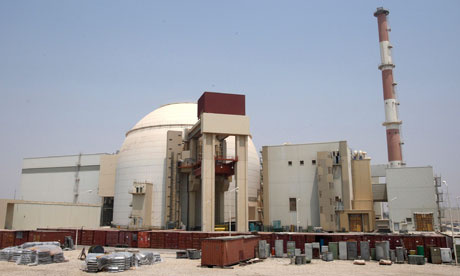Growing Mistrust between Iran and US

-The recent statements made by Wendy Sherman with regard to Iran’s enrichment capacity show that the atmosphere of mistrust between Iran and the US is growing because based on the agreement made last year in New York between the two countries, Iran and the US are committed to not bringing the issues of difference to the media.
-At the end of the Vienna-6 negotiations, one of the issues of difference between Iran and the P5+1 which was Iran’s enrichment capacity became public.
-At that time, the P5+1 countries stated that Iran’s demand for enrichment capacity and the number of centrifuges was a maximal demand although later the negotiating team of the Islamic Republic of Iran explained that this amount of enrichment and this number of centrifuges were within the framework of Iran’s long-term programs and that Iran was not expected to reach this capacity at the present time.
-But it seems that Iran’s explanation was not considered by the US neither in Vienna-6 nor in the bilateral negotiations because an atmosphere of mistrust has again been formed between the two countries.
-Part of the reason behind this mistrust is due to the crisis in Ukraine and the growing differences between Russia and the West wherein Iran has had better relations with Russia from the past and could be defined as being in Russia’s front. Of course, this incident happened too early and Iran practically defined itself in Russia’s front.
-After Vienna-6, there was an increase in the number of meetings with Russia. Russia, which was under the West’s pressures and sanctions, needed to find allies in the international scene in order to neutralize the sanctions and pressures and this signal was sent to the West that in the crisis between Russia and the West, Iran’s views were closer to Russia and there was coordination with regard to the Ukraine crisis between the two parties.
-One of the other reasons which caused this mistrust was the non-completion of the third step of cooperation between Iran and the IAEA which was supposed to be closed by Iran’s five practical steps by August 23rd.
-But a few days before this date, the Islamic Republic of Iran stated that only three measures out of the five practical steps were on the agenda and the other two issues including the issue of Parchin needed more time for response.
-Therefore, the difference between Iran and the IAEA led to the growing mistrust between Iran and the P5+1 until the issue of ISIS and possible cooperation between Iran and the US to fight this group was proposed.
-It was clear from the beginning that the countries of the region, particularly Saudi Arabia, were against any cooperation between Iran and the US with regard to the issue of ISIS because this possible cooperation could legitimize Iran’s power and status in the region and this contradicted the views of the Arab states of the region.
-These oppositions prevented Iran from being invited to the Paris Conference, thus, misunderstandings were created between Iran and the US which inflamed the atmosphere of mistrust between the two countries.
-Among the consequences of the establishment of mistrust between Iran and the US is the official and public positions with regard to the differences between Iran and the P5+1; an issue which was supposed to be limited to the meetings.
-We need to act more prudently in order to prevent the growth of the mistrust between Iran and the P5+1 because great efforts were made to remove them before and any storm on the threshold of negotiations will not benefit the nuclear issue and resolution of the differences between the two parties. The more these misunderstandings expand, the more the US officials will take explicit positions.
-When the crisis in Ukraine happened, we reiterated that Iran must not involve itself in the conflict between Russia and the West. Iran’s best position in this conflict would have been to be neutral.
-Nonetheless, instead of expressing its neutrality on this issue, Iran signed new agreements with Russia. Russia has already benefited from these agreements none of which would perhaps be implemented and this has burnt the bridges behind Iran.
-The Russians have, many times, proven that they would sacrifice Iran any time that they reach an agreement with the West. Then why should Iran trust Russia which is neither trustworthy nor is a decisive factor in the international issues including the nuclear dossier.
-The New York meeting which covers the new round of negotiations between Iran and the P5+1 is an expert meeting and the deputy foreign ministers are allowed to negotiate at the defined levels dictated by the higher officials, thus, there is not much hope for the fruitfulness of these negotiations.
-If Mr. Zarif meets with the foreign ministers of the P5+1 or Mr. Rohani holds meetings with the presidents and removes the misunderstandings, we could then hope for the success of the nuclear negotiations.
-In the expert meetings, negotiators cannot make political decisions because these decisions should be made by the foreign ministers or the presidents. This is while, considering the ruling atmosphere of mistrust in negotiations and also the growing misunderstandings between the two parties, what would be able to resolve the problems would be political decisions made at high levels.

